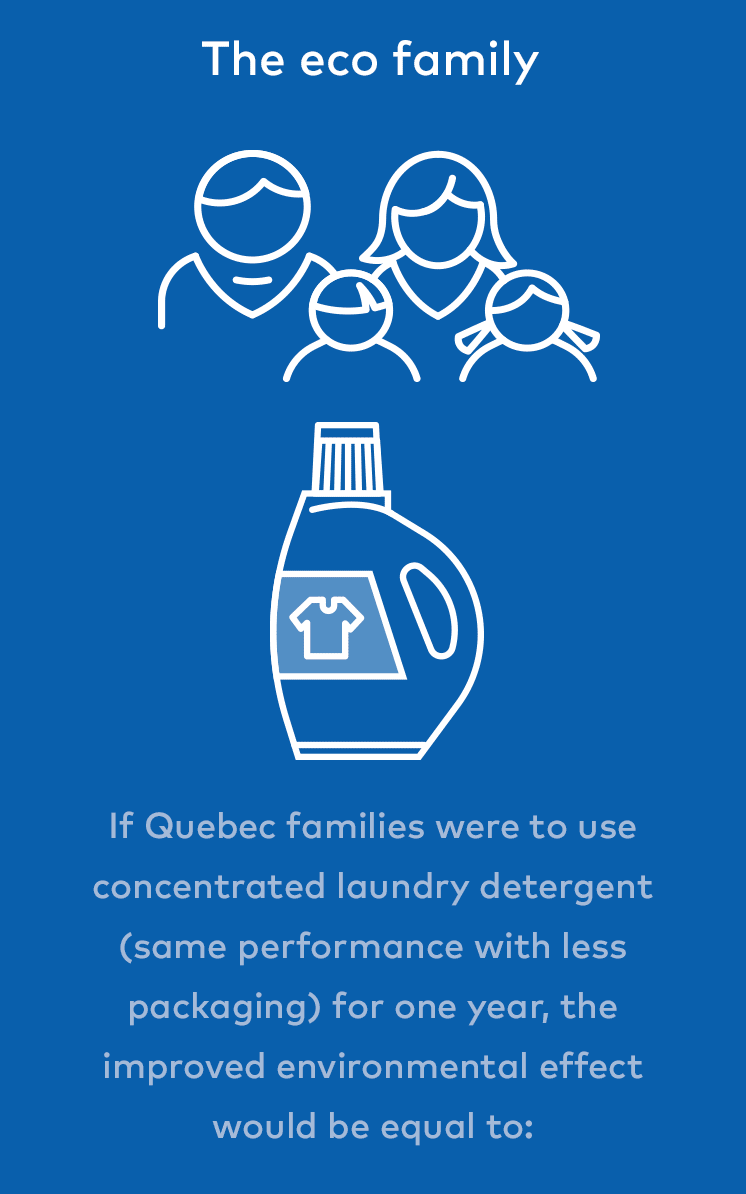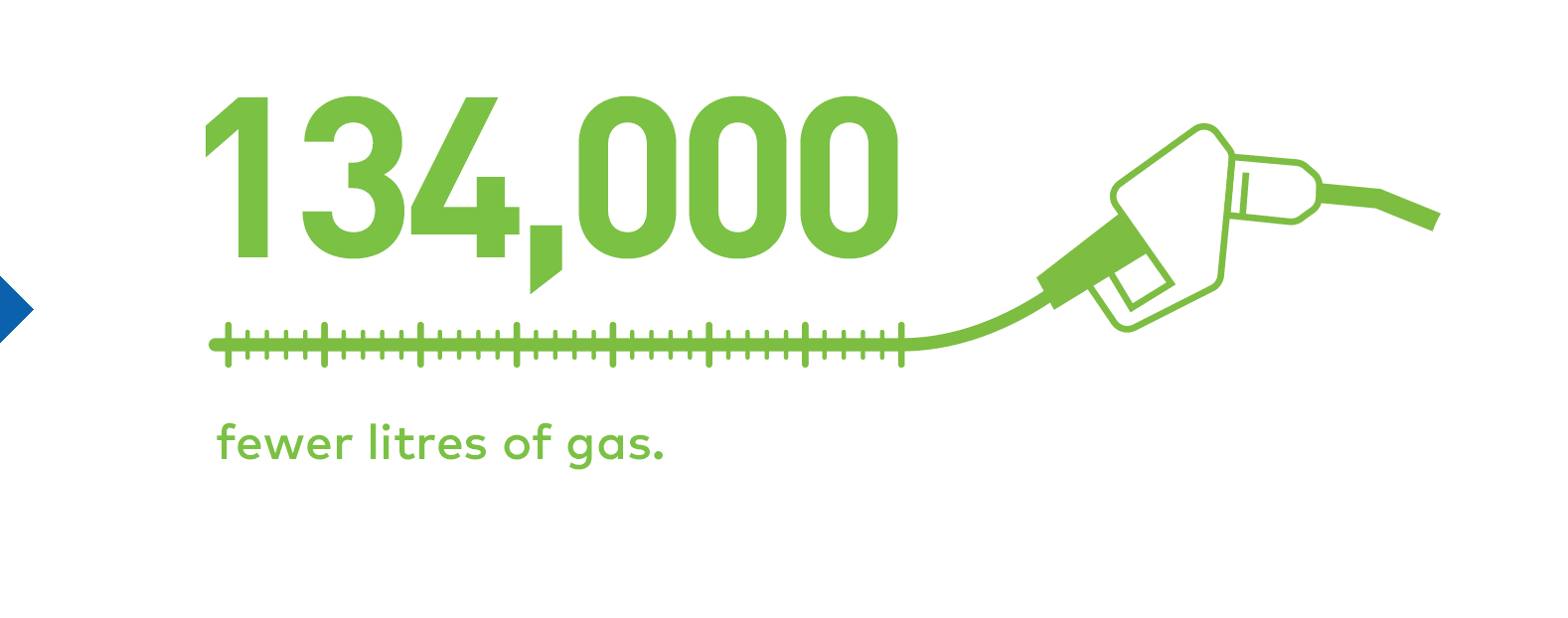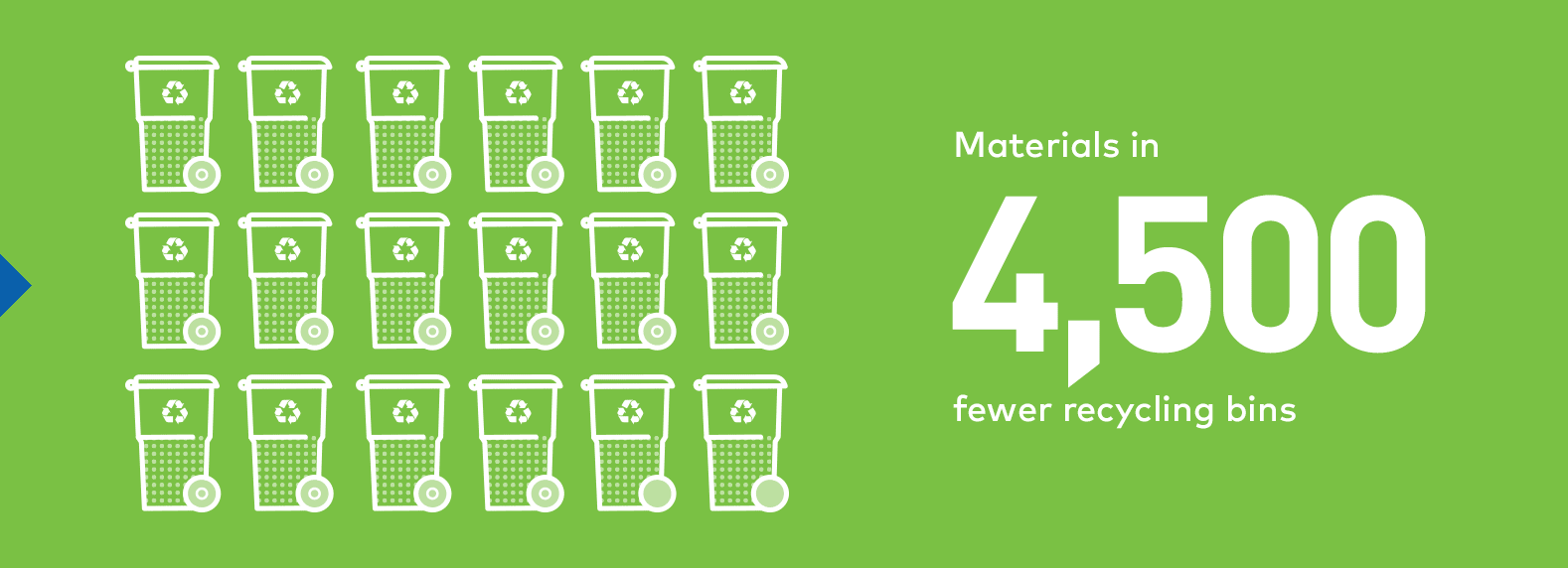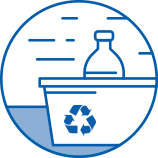


 Buy
Buy
At the store, choose products with eco-responsible packaging. Don’t forget to bring your reusable shopping bags! Be sure to clean the bags from time to time and avoid buying too many of them, as their production consumes significant resources and energy. If you’ve forgotten them home, plastic bags provided at the cash register may be later reused to collect kitchen waste or animal excrement, or bagged together and placed in the recycling bin.
 Use
Use
If you know you can use up all the product, choose larger sizes instead of single-serving containers. That way, you will reduce the quantity of packaging placed in the recycling bin. In some cases like yogurt, the larger size container is recyclable, while the single-serving is not necessarily so.
Of course, it’s always better to buy a smaller size that meets your needs if the extra product in a large one will end up as waste. You may also consider freezing that extra product to extend its life.
 A second life
A second life
Many items you use every day are made with recycled materials. The containers, packaging and printed matter you place in your recycling bin are collected, sorted and processed by materials recyclers. Manufacturers then use the “new” materials to make other packaging, printed matter and sometimes whole new products such as clothing, furniture or construction materials.
Did you know that companies finance materials recovery?
In Quebec, companies who market containers, packaging and printed matter (which Quebecers eventually place in their recycling bins) finance the municipal services that collect recyclable materials from homes and public places.